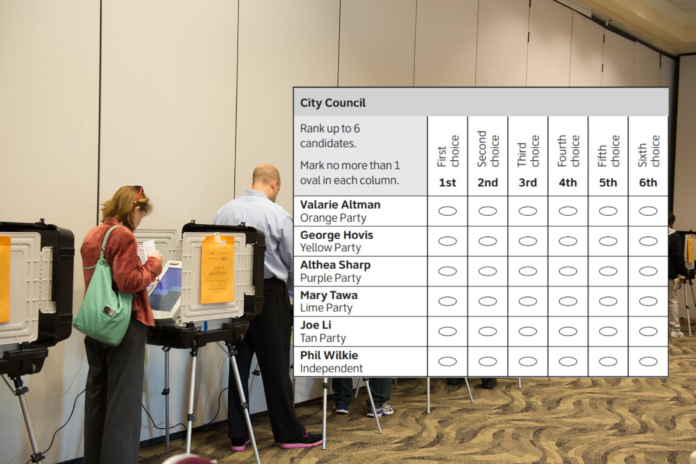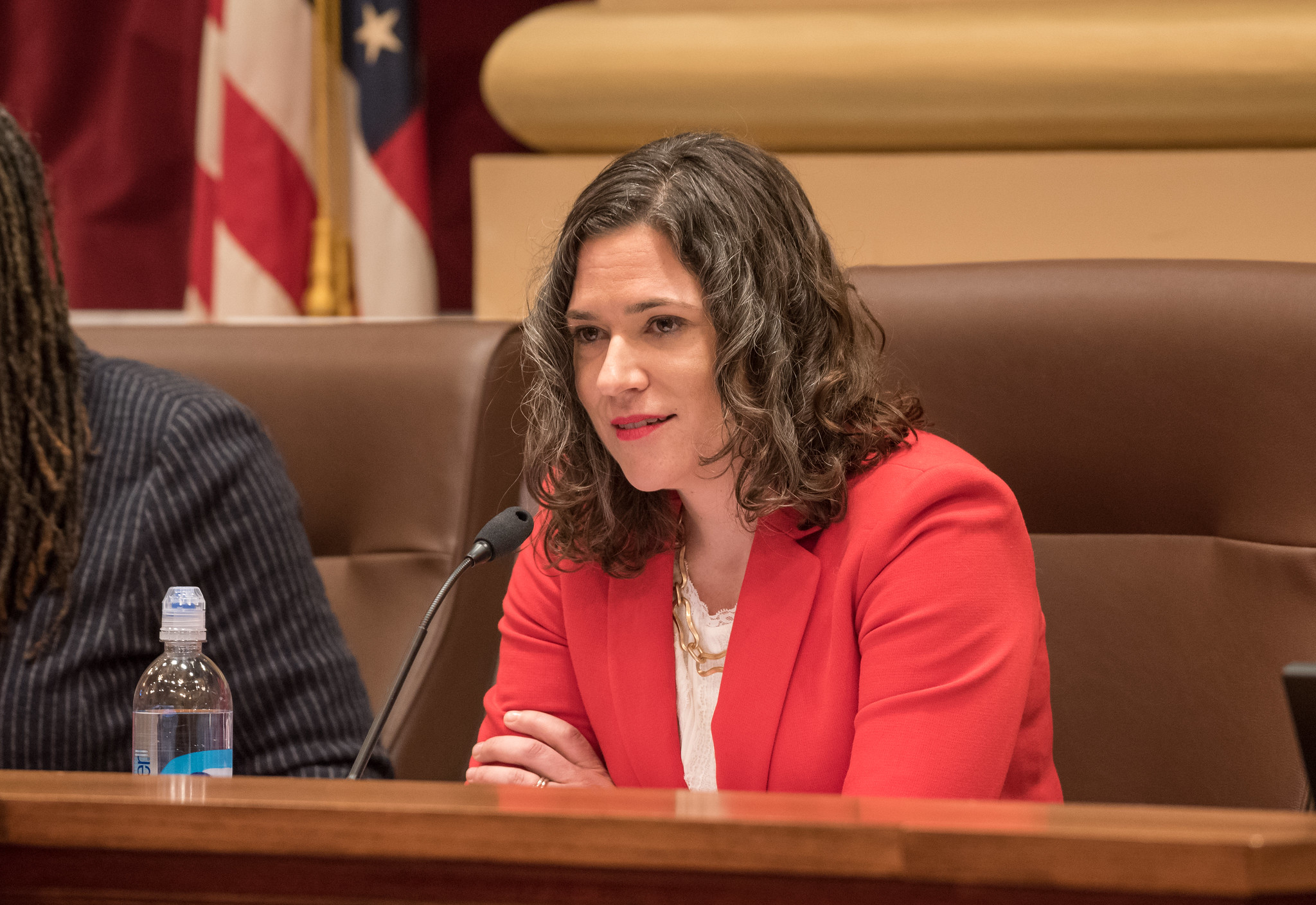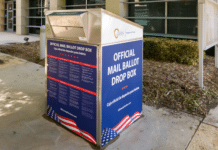
Kathy Kranz | Kim Crockett
Ranked-choice voting (RCV) is not what its proponents claim it to be — a way to elect candidates who have broader political support, all in a less divisive way.
The New York Times describes it this way:
“The basic idea is to allow people both to select their favorite candidate and to indicate their preferences among the other candidates. That combination can allow the most broadly popular candidate to win the election, while also making clear the full spectrum of voters’ views.”
According to FairVote, a deep-pocketed RCV national advocacy group with an affiliate, FairVoteMN:
“It is a simple, but powerful change to the way we vote that gives voters more choice and more power, eliminates spoiler dynamics and structural inequities, incentivizes candidates to build majority coalitions, elects candidates supported by the most voters, and fosters elected leaders who govern, and problem solve on behalf of the majority.”
As an aside, aren’t politics and elections contentious by definition? But deep divisions are another; are we so deeply divided because of the way we vote? Or is it because we no longer have a cohesive, shared American experience and culture? Is it possible that RCV will actually leave us more divided and cynical about the electoral process? Perhaps the cure that FairVote is selling is worse than the disease. For example, look at Minneapolis.
Minneapolis was the first Minnesota city to adopt RCV, followed by St. Paul and St. Louis Park. Bloomington and Minnetonka passed RCV in 2020. Minneapolis is held up as a model by RCV’s supporters. How is RCV performing in Minnesota’s largest city? Is Minneapolis less divided since adopting RCV?
The answer is clearly no, though RCV supporters would argue, perhaps correctly, that RCV has produced a much more diverse cast of characters, and we would add, with more extreme political views. Check that box.
Is Minneapolis better managed as a result of RCV elections? Does the current council really represent the people of Minneapolis better than past councils? Since the answer is clearly no, are the voters of Minneapolis able to oust council members this fall under an RCV voting system?

Here are a few things for RCV enthusiasts to consider. When used in the last Minneapolis race in 2017 that produced Mayor Jacob Frey, almost a full quarter of all votes cast were “exhausted” (e.g., thrown out), with the process taking five rounds to get to an eventual winner by a mere plurality of votes.
Voters should understand that with ranked-choice voting, if a candidate receives a simple majority (50%+1) in the first round, the candidate wins. If no candidate receives that simple majority, in each subsequent round there is a diminishing return, as the lowest candidates are dropped from the ballot and their voters’ next choice is applied. The ability to receive a simple majority is very unlikely after the third round of counting.
Additionally, not all voters select multiple candidates, and if they choose a candidate not remaining on the ballot, their voting ends and their ballot is identified as “exhausted.” Moreover, voters who select the “biggest loser” with the lowest amount of support as their top choice, have a greater impact on the outcome than voters who choose a candidate with a higher likelihood of winning. It is because their vote then transfers to another candidate a second, possibly third, fourth or even a fifth time. Got that?
A simpler way to say it is, if you choose winning candidates, you have fewer votes (choices counted) than the person who chooses the biggest loser because they have more choices counted before their vote is exhausted. (For more information on how votes are weighted and other aspects of RCV, please see www.RCVScam.com.)
RCV, which has attracted a motley and somewhat politically diverse crew of supporters including the DFL and Libertarian Party of Minnesota, was vetoed twice by two Democratic governors: Gov. Jerry Brown returned an RCV bill in 2016 stating that RCV was “overly complicated” and “confusing.” He believed that voting should be kept simple to encourage voter participation. Gov. Gavin Newsom in 2019 decided that RCV had already been tried in California, had led to “voter confusion” and was not necessarily more “democratic.”
The late Walter Mondale, a former U.S. senator and vice president, was opposed to RCV. He said, “Voting in America should be plain and simple. Ranked-choice voting is neither. It is confusing and complex.” He also said, “Ranked-choice voting will not bring us more democracy. It favors elites who know how to work the new and complex system.”
It is not just Democrats who are supporting RCV, though the big money comes from George Soros and other leftist anti-democratic groups. RCV is gaining ground across the country, even in Republican strongholds, so do not assume if you live in a “conservative” area that you do not have to be on guard. FairVoteMN has a 2021 budget of $667,000. One of their targets in 2021, by the way, is Moorhead.
Now comes FairVote and their state affiliate FairVoteMN into charter cities like Bloomington and Minnetonka. FairVoteMN lobbied the city councils to put RCV up as a referendum posed as a question on a change in the system, with little to no specifics. Each city’s charter commission tabled RCV and opposed the referenda.
Voters might mistakenly believe that the council was merely seeking input, and that RCV would be discussed further and voted on later after a statute was drafted. The ballot question was as follows: Should the Bloomington City Charter be amended to elect the Mayor and City Council members by the ranked-choice voting method?
The City of Bloomington did not provide much in the way of details to voters in advance of the referenda, though the FairVote campaigns were pretty slick, funding a massive campaign featuring websites and local committees. It took until April 26 of this year for the Bloomington City Council to create a final ordinance. Isn’t that backwards?
Campaign finance records reveal the following expenditures:
- Bloomington Referendum – Committee for Ranked Choice Bloomington spent $130,013, of which 97% ($126,672) came from FairVoteMN versus $6,081 from resident donations to defeat the measure. Residents were outspent 21 to 1 by foundation donations from outside the state. The ballot initiative only passed by 96 votes.
- Minnetonka Referendum – Committee for Ranked Choice Voting Minnetonka spent $103,032, of which 97% ($99,941) came from FairVoteMN. The citizen committee to defeat the measure in Minnetonka raised $360. The ballot initiative passed by over 3000 votes. (The authors think most Minnetonka residents were caught by surprise.)
FairVoteMN funds city-wide campaigns and after RCV is approved, FairVoteMN comes into the cities to provide guidance for setting up the program, with privately-funded resources to teach candidates RCV strategic practices. It teaches candidates to form alliances (which could be viewed not as healthy coalition building but instead as a form of collusion) with other candidates.
These alliances can mask candidate qualifications, and potentially alter the policy positions of the individual candidate, making the choice of who to vote for less clear and more complicated. Under RCV, voters are often befuddled on how to vote their choice with confidence. This is especially true of unsophisticated or low-information voters who do not wish to master the “strategy” required by RCV.
Who are the leaders in Minnesota championing RCV? (You can see the full list here). U.S. Rep. Dean Phillips is featured as one of FairVote’s champions. Here is what he said on the FairVote website:
“Restoring faith in government begins with improving our electoral system. Ranked-choice voting is simple, empowers voters, and rewards candidates who broaden support beyond their base.
It is a foundational change that would create the domino effect that would help us get to where we want to go just a little more quickly.”
What exactly is Congressman Phillips saying here — what domino effect does he does want to speed up, and to what end?

The good news is that in Minnesota only certain charter cities can elect to vote by RCV. (Charter cities have a mandated initiative process for citizens to petition for and vote on charter amendments; they also have authority to allow initiative for ordinances. Some have granted this power to citizens, others have not.)
So if you live in one of Minnesota’s 107 charter cities, find out if your city council is talking to FairVote or considering RCV. Is it on the agenda? Call your mayor and city manager. If the answer is yes, get busy now.
For the rest of us who live in one of the 747 statutory cities (governed by general state law), be aware that FairVote is lobbying the legislature to bring RCV to statutory cities, too.
Here is their statement: “While a growing number of Minnesota communities would like to adopt RCV for local elections, only charter cities with odd year elections — a small percentage of cities in Minnesota — are able to do so. We need to pass the local options measure in the state legislature to restore local control and allow all local jurisdictions to adopt RCV if they wish.”
Do you see how they cynically use concepts like “local control” to market ideas that will destroy local control?
RCV is in practice an enhanced candidate collusion strategy that works against the voter and fair, straightforward elections. Sadly, more and more Americans have been forced to play this cynical game that leaves them saddled with elected officials who do not represent the majority of voters, bringing more division to our communities, not less. Like a noxious weed, once RCV is in place, it is hard but not impossible to root out.
Our impression is that politicians like Tim Walz, Angie Craig and Ilhan Omar who also support RCV find the normal electioneering and voting process to be an annoying and burdensome obstacle to getting power and achieving an extreme agenda that most Minnesotans would not support. We hope you agree that RCV epitomizes caveat suffragator.
– – –
Kathy Kranz is a former high school teacher, debate coach, small business owner and community activist from Bloomington. She has testified in the Minnesota Legislature on RCV.
Kim Crockett is a lawyer and voting rights advocate. She is a Legal Policy Advisor to Minnesota Voters Alliance (MVA) and Chairman of For Kids & Country. Kim is a contributor to local and national forums including American Greatness, Intellectual Takeout, Alpha News, The Minneapolis Star Tribune, The Wall Street Journal, and National Review Online.
For more information on RCV in Minnesota see rcvscam.com.

















